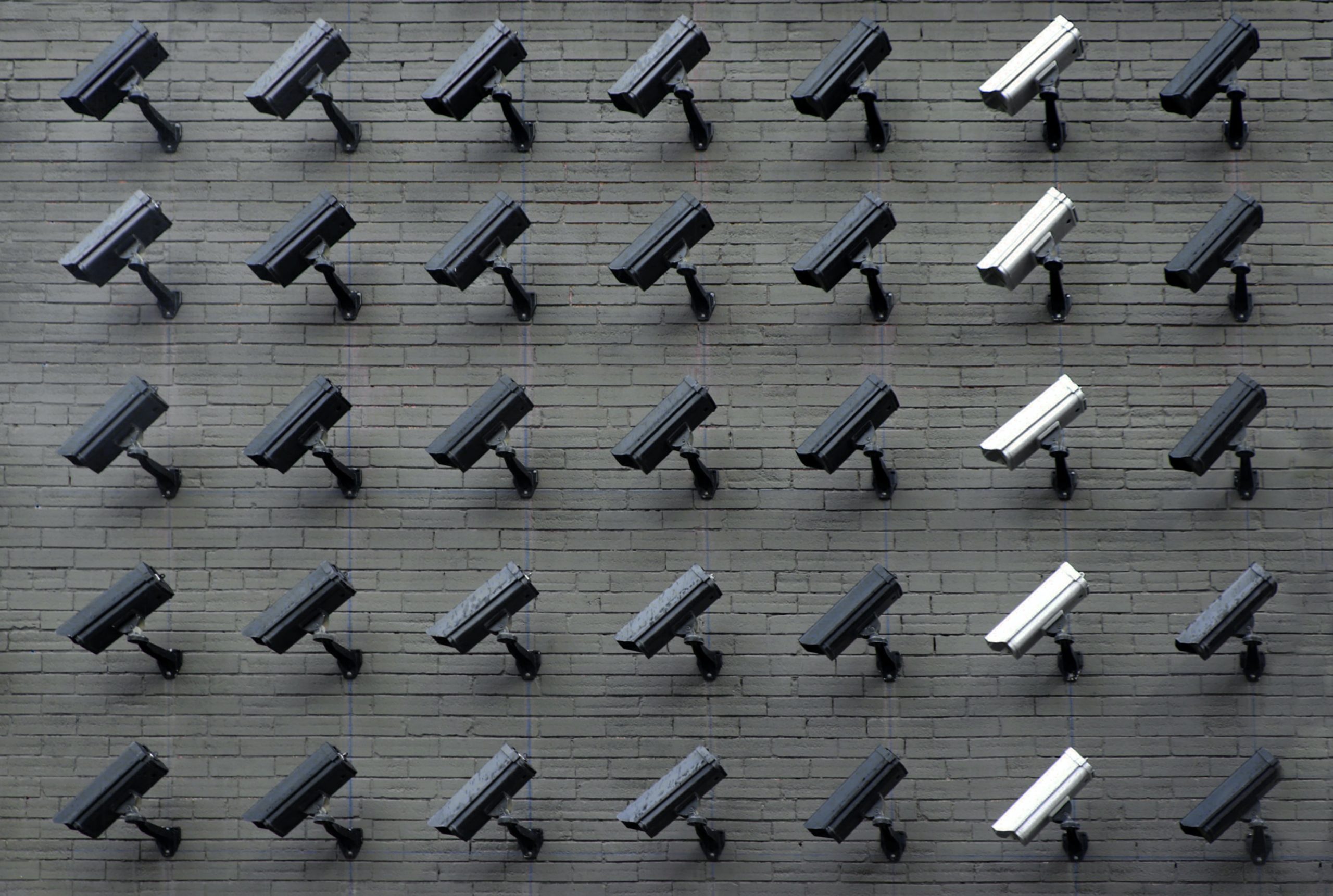

RECOMMENDED READING
Privacy is another major casualty of the COVID-19 pandemic. Governments instituted expansive surveillance programs to enable contact tracing and corral the disease. Many of these programs are here to stay, as citizens get used to them or welcome them to avoid future quarantine and lockdowns.
More generally, the pandemic accelerated our growing dependence on digital media, which inherently make our personal information vulnerable. Students have relied on digital platforms to receive instruction, many of which are now entrenched in pedagogy for the long term. Millions of Americans began to work online, far from the office, and will continue to do so. They have also learned to rely on online retailers to supply everything from groceries to clothing to home goods. These are all new habits of living, which will continue long after the pandemic.
In each of these interactions, we leave a multitude of digital trails, which marketers and data analysts hungrily devour to learn everything they can. This is of little concern to most of us—or we don’t have the time or energy to do much about it. We know we are watched and followed online. But what can we do? These are the terms of the digital economy, from which there is no escape. And really, why would we want to escape? Its conveniences are wondrous; we are generally happy to sacrifice data for all that we gain.
But civil libertarians warn that our freedom and autonomy are at risk. Our spies—whether based in Langley or Silicon Valley—can more easily manipulate us the more they know about us. Privacy advocates thus recommend stronger regulations that may help us wrest power from our spies, controlling when and how we share our data. The European Union is a model in this regard: in 2018, it enacted a law requiring companies to explain what they will do with consumer data, and secure consent before data is collected. But these measures are quite impotent: how many times have you “accepted cookies” without a second thought?
The threats to our privacy do not come principally from our spies. They come from us. We reflexively fork over data to maximize our participation in the digital economy. In this harried space, we hardly give privacy a thought. What good is more control over our data if we don’t have the time, interest, or talents to exercise such control?
Autonomy, philosophers have long argued, rests on reflection and self-study, where we make choices thoughtfully and intentionally. This is the basis of character, which is the best antidote to lost privacy.
“The most important determinant” of an individual’s ability to withstand digital manipulation, researchers have concluded, is the “ability to premeditate.” When we reflect on our needs and desires, and are fully aware of our available choices, then we may gain a degree of self-control. In the digital economy, however, where business moves at warp speed, we happily outsource reflection and choice.
Many of us increasingly rely on “digital assistants,” which promise to organize our many obligations and help us navigate busy personal and professional schedules. Amazon’s Alexa, Apple’s Siri, and Google Assistant insinuate themselves into our lives and learn everything they can from our internet searches, our emails, our digital calendar, our app usage, and our location data. The goal is to achieve “anticipatory knowledge,” where digital assistants grasp what we want or need before we ask—or know it ourselves.
We lean on digital assistants because life in 21st century America is so hectic, and we happily outsource tedious deliberation. Workweeks continue to grow; Americans are notorious workaholics. We spend a lot of time in our cars, enduring ever longer commutes. Parents stay in the car long after work is done, ferrying overscheduled kids to sports practice, music lessons, and the like. Digital media fit perfectly into our tight schedules and help us juggle it all. Paradoxically, because digital media help us work more efficiently on-the-go, we end up taking on more, not less. We strive harder to get ahead—and become more reliant on digital assistants—that know everything about us.
It’s easy to see how privacy is a common casualty in this age. We are not disposed to take the time to protect it, respect it, or even think about it. We are perpetually dissuaded from relying on inner resources that would muster a defense of our intimate lives. This starts with character, cultivated and constructed through careful habits of reflection, and nourished by intentional communities.
Building such character is how one achieves virtue, according to Aristotle. He famously argued that virtue entails choosing the mean between extremes in any given situation. This is not easy, and requires nothing less than “practical wisdom,” or phronesis, which is achieved over time, through practice. You must practice keen attention, understand your nature and your abilities, and what circumstances demand—which varies constantly.
You must come to know yourself exceedingly well, and be intimately aware of your needs and options at every moment. This talent for attention must be instinctual, second nature. Such character is the product of habits, giving it a strong foundation, according to Aristotle. But habits are not merely individual: the roots of character reach beyond the individual, into the community at large. Habits of reflection must be ingrained in individuals and supported by the surrounding culture. They are not organically spawned.
This need for community is a lucky thing, given the digital threat before us: we cannot possibly face off against our tech overlords as lone individuals, charged with protecting our privacy as best we can. The forces invested in spying on us, collecting and analyzing every iota of information in order to manipulate us, these are some of the richest, most powerful corporations on earth. Anticipating what they do with my data—and heading them off and wresting back control—is a tall order. I cannot rebuff or resist their advances on my own.
We may be better equipped to protect our liberty when we understand with John Dewey that individuals are not the basic unit of democracy—associations are. Civic associations alone can embolden us and counter, if not overcome, powerful spies in the public and private sector alike—as they have in the past.
Democratic citizens are principally a social product, as Dewey saw it. They are molded, formed, and empowered through social interaction—and they exert their power socially, not individually. Citizens are not produced in private. They are not made by simply giving people space, time, and quiet. Rather, citizens are forged through interaction and communication, learned habits of negotiation and peaceful dispute, and the crucible of struggle. This is the context in which autonomy emerges—not in merely being left alone, as privacy advocates contend.
Dewey understood associations expansively. They may include social clubs, labor unions, political advocacy groups, as well as churches, mosques, and synagogues. Associations impart crucial democratic training for their members—plentiful opportunities to learn how to listen to one another, navigate differences and disputes, and manage complicated coordination efforts. Associations help us define ourselves, address and compete with opponents, and challenge authority—credibly. Entrenched powers are more likely to heed, and perhaps fear, coordinated citizen action, not the demands of isolated individuals.
We must align ourselves again with intentional communities. Once upon a time, Americans took part in a number of social groups, formal and informal, throughout the week—fraternities, clubs, volunteer associations, card games, bowling leagues—and a religious service on the weekend. Today, we are content to fall on the couch at the end of a long day and grueling commute. Suburban landscapes also prioritize individualism and discourage easy socialization, thanks to the need to get in your car to meet people in public spaces. This takes effort, which is often hard to muster.
The onslaught of surveillance technology requires nothing less than a cultural change, in which we learn to reflect and take time, and communities empowered to instill those character traits in us. It requires that we become more self-aware in the rushed, mind-numbing digital economy.
Luckily, and paradoxically, the COVID-19 pandemic may have given us an alluring taste of a different life. I will never forget the deafening silence of my once busy street, mid-pandemic, eerily quiet. Birds were chirping, when they would normally be drowned out by the highway nearby. People walked in my suburban street—neighbors who never knew or noticed one another now waved, chatted, and offered moral support.
The pandemic forced isolation and quarantine. But it was also a much-needed revelation—a welcome lesson in the virtues of slowing down, reaching out, paying attention. We hungrily crowd into bars and restaurants and public spaces with renewed verve and appreciation, now that the pandemic is winding down. It has given us pause to look around and reassess what is valuable. If the lesson might endure, our digital spies will have a harder time picking us off, and subduing us in turn.
Recommended Reading
The Future of American Energy with Thomas Hochman
Oren and Thomas discuss American energy policy, the promise of nuclear, climate change, regulatory hurdles, and much more.
Michael Pettis on Dollar Dominance
Oren is joined by Michael Pettis for an in-depth discussion of the dollar as the global reserve currency: pros, cons, and what it all means for the American economy.
How Republicans learnt to love bigger government
The era of “the era of big government is over” may itself now be over, writes Oren Cass in the Financial Times.











